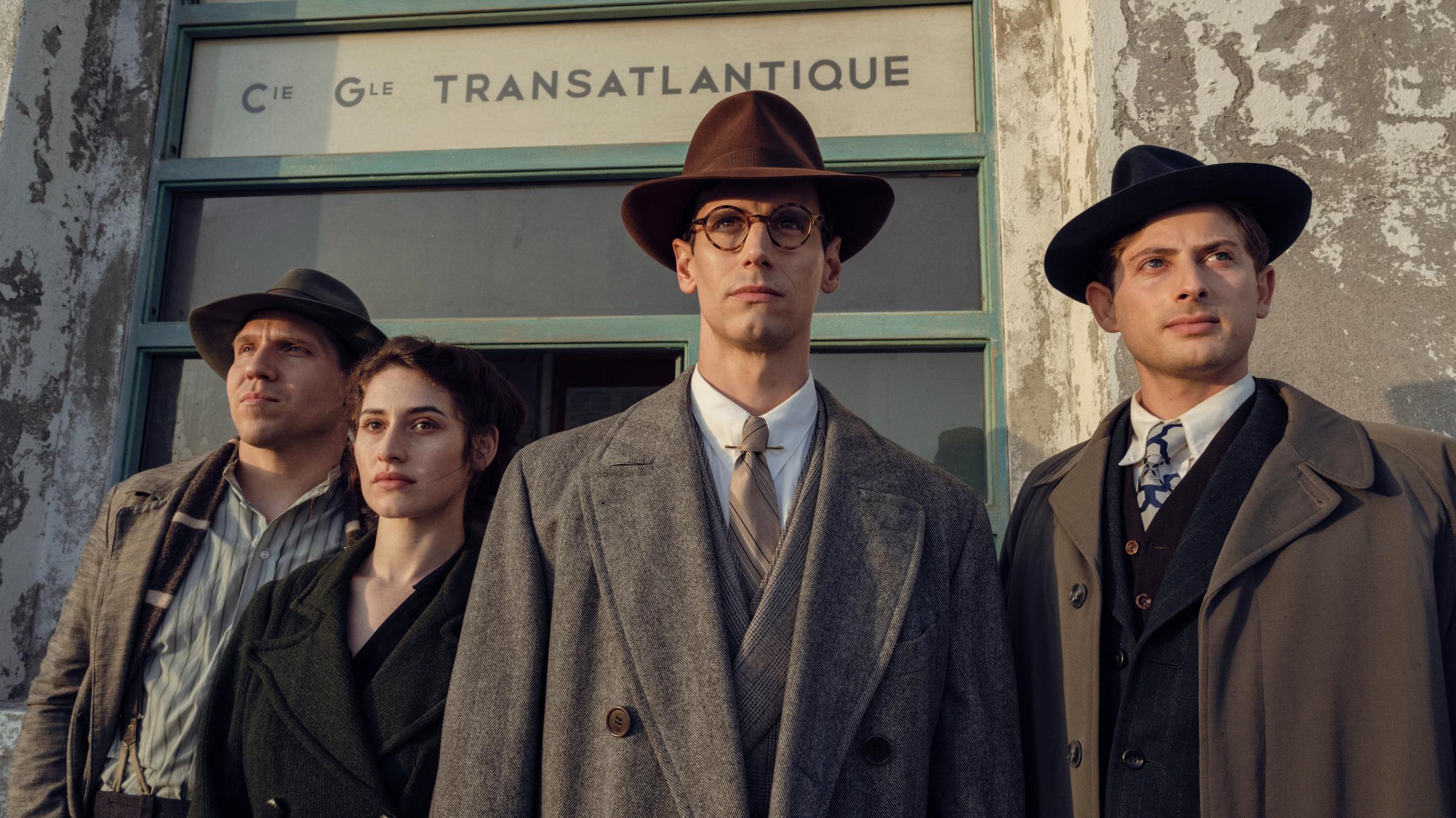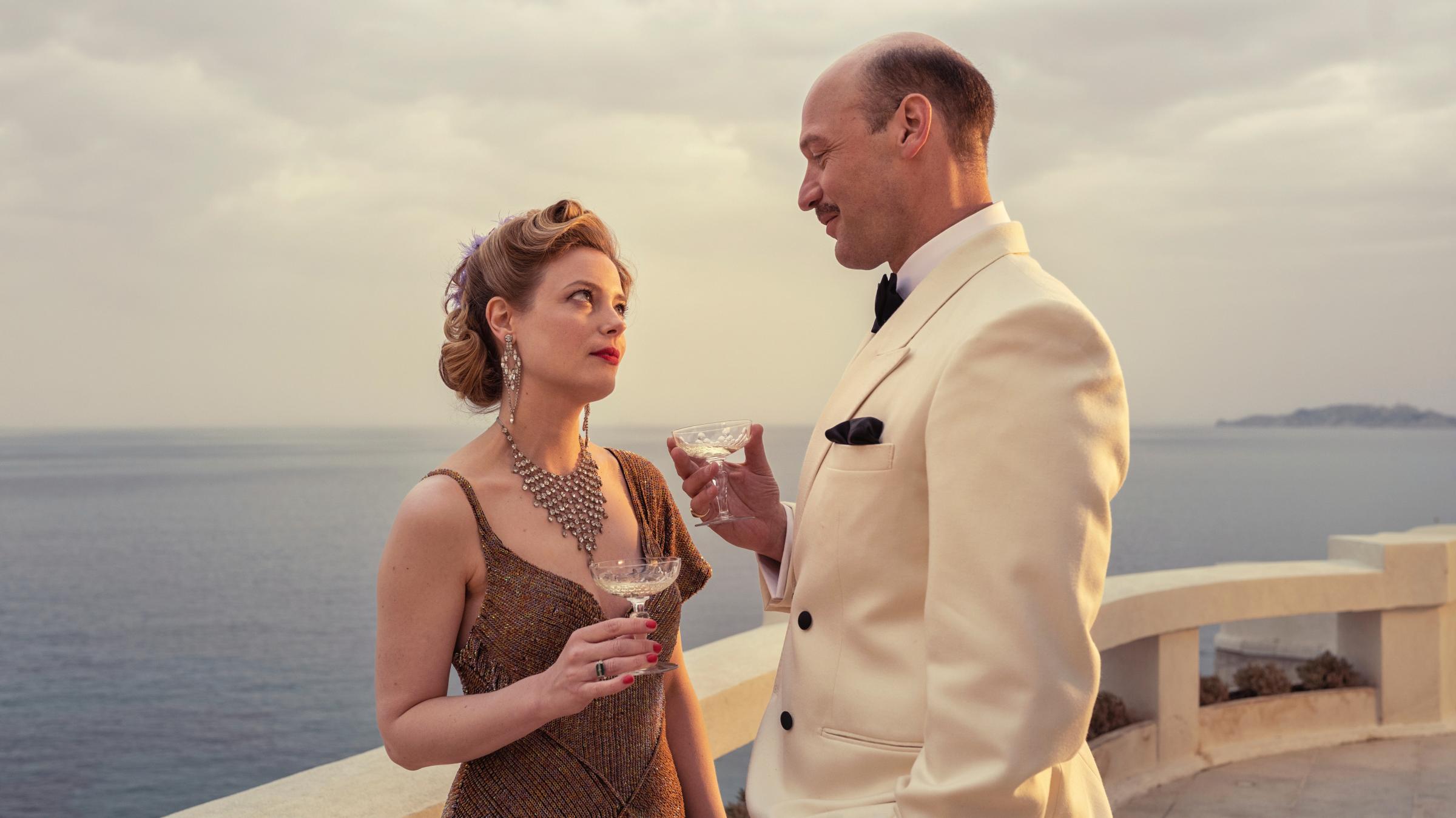The history of the United States’ official efforts to thwart Hitler’s persecution and eventual genocide of European Jews and other minorities, before the Japanese attack on Pearl Harbor on December 7, 1941 forced FDR to enter World War II, is not an inspiring one. Filmmakers Ken Burns, Lynn Novick, and Sarah Botstein chronicled this tragic inaction—which was, in part, a reflection of widespread stateside antisemitism—in last year’s excellent documentary series The U.S. and the Holocaust. When individual Americans took it upon themselves to fight Nazi atrocities, they generally did so in open defiance of their government’s policy of neutrality.
Transatlantic, a solid seven-part historical drama from Unorthodox and Deutschland 83 creator Anna Winger that hits Netflix on April 7, retells one of the most remarkable stories of such bravery. Inspired by Julie Orringer’s 2019 novel The Flight Portfolio and set in the crucial port city of Marseille in the months after the Nazis conquered Paris, the miniseries traces the efforts of American journalist Varian Fry’s Emergency Rescue Committee (a forerunner of the International Rescue Committee) to save European artists and intellectuals from the Third Reich. It’s a fascinating tale, and one that Winger and co-creator Daniel Hendler know better than to flatten into empty inspiration porn. But for all its gestures toward complexity, the show spends so much time on bureaucratic logistics and familiar romance narratives that it ends up glossing over the revolutionary art, ideas, and personalities for which the ERC risked everything.

At the center of the action in Marseille is Mary Jayne Gold, a real Chicago heiress portrayed by Community alum Gillian Jacobs. When we meet her, Mary Jayne is drinking wine outdoors at a quaint cafe, receiving a lecture from an admirer, American consul general Graham Patterson (a fictionalized version of Hugh S. Fullerton, played by Corey Stoll), on why she should obey her father’s orders to return home. “Come on, Miss Gold, be good,” he urges. “Go home, settle down with a nice guy like everyone else.” Moments later, she follows a filthy young refugee woman to the establishment’s bathroom, offers to pay to have her and her brother smuggled onto a ship headed for New York, then trades dresses with her new friend and returns to the table in a muddy, sweat-stained shirtwaist. Graham is about to learn that Miss Gold is not here to be good. She’s here to save lives, famous and otherwise, by any means necessary.
Varian (Cory Michael Smith) is her anxious ally in this endeavor. Initially determined to secure American visas for Jewish and dissident cultural figures such as Hannah Arendt, Marc Chagall, and Andre Breton through cooperation with Graham—who’s more excited about the business opportunities a Hitler-controlled Europe might bring to the U.S. than he is at the prospect of shepherding the continent’s intellectuals to safety—Varian grows increasingly frustrated by the apparent indifference of government officials as Nazi troops descend on Marseille. Along with the refugee woman’s brother, who turns out to be German-Jewish Resistance hero and future renowned economist Albert Hirschman (Lucas Englander), he and Mary Jayne work to get as many vulnerable people out of France as possible, using a variety of routes, allies, and tactics.

A villa in the countryside becomes their base of operations. It’s a bittersweet purgatory, where the endangered giants of the European avant-garde play surrealist parlor games, throw wild, eclectic parties, and try to work while waiting for visas or other, less legally sanctioned, forms of expatriation. At center stage, Mary Jayne, Varian, and Albert explore divergent means of resisting the Nazis and guiding refugees to safety. Much as she has been in past projects, Winger is alert to the tangle of moral, political, and practical choices that unite and divide her characters. Americans consider the risks of, for example, aiding British intelligence, as well as their obligation to Jews who aren’t on ERC’s list of luminaries. Refugees en route to freedom weigh their responsibility to help others escape. Are individual rescues enough, or should these antifascists join, as West African intellectual Paul Kandjo (Ralph Amoussou) does, an armed Resistance to not only fight Nazis, but also attempt to dismantle European colonialism?
A climate of chaos and commitment doesn’t keep the main characters from becoming entangled in matters of the heart. Mary Jayne is drawn to Albert’s courage, and he to her idealism; Graham’s jealousy could put both of them in peril. A Harvard man with a wife back home in the States, Varian wrestles with guilt and fear after reconnecting with a male lover. These Casablanca-tinged tales of love during wartime are meant, I think, to ground Transatlantic emotionally. Certainly, Varian’s closeted sexuality (which was confirmed by his son after the publication of Orringer’s novel) illuminates why an American insider might’ve questioned his loyalty to a country that refused to stand up to Hitler. Yet I found these story lines—particularly the Mary Jane-Albert romance, which suffers from a dearth of chemistry between Jacobs and Englander—kind of banal compared with the extraordinary ones relegated to the background.

Some of the icons who were the ERC’s raison d’être, like Max Ernst (Alexander Fehling) and Walter Benjamin (Moritz Bleibtreu), become characters for an episode or two. But the show focuses more on the logistics of their cases than on the revelations of their art and philosophy, which the Nazis found so threatening. Collectively, they come across as eccentric rescue-of-the-week fodder rather than as the avant-garde challengers to fascism, war, and empire that they actually were. I can see why Winger felt compelled to demonstrate just how excruciatingly difficult it could be for Fry and Co. to get even one artist of international renown to the U.S. But a more thematically ambitious Transatlantic might’ve sacrificed some of that detail in order to better illustrate the human stakes of the Reich’s war on free thought and expression.
The disconnect between subject and story manifests in the show’s form as well as its content. A silent, black-and-white closing credits sequence in the style of early-20th-century European experimental films like Luis Buñuel’s “Un Chien Andalou” hints at Winger’s appreciation for the work Fry and his allies at institutions including the Museum of Modern Art championed—and the more inventive miniseries that could have been. Sadly, within the episodes themselves, the storytelling is just as sentimental, plot-driven, and conventional as that of any other prestige historical drama vying for awards attention in the run-up to Emmy season. It’s impossible to do justice to radical genius within the constraints of a middlebrow template. For all its technical competence and moral care, Transatlantic falls short of the art and ideas that inspired it.
More Must-Reads from TIME
- Donald Trump Is TIME's 2024 Person of the Year
- Why We Chose Trump as Person of the Year
- Is Intermittent Fasting Good or Bad for You?
- The 100 Must-Read Books of 2024
- The 20 Best Christmas TV Episodes
- Column: If Optimism Feels Ridiculous Now, Try Hope
- The Future of Climate Action Is Trade Policy
- Merle Bombardieri Is Helping People Make the Baby Decision
Contact us at letters@time.com